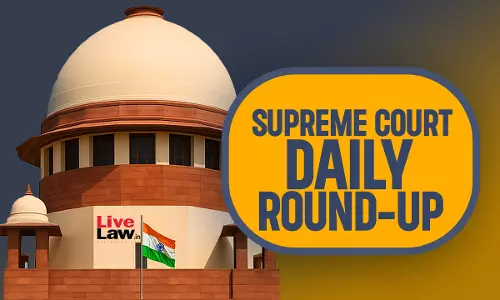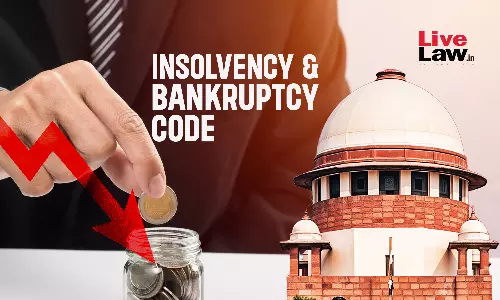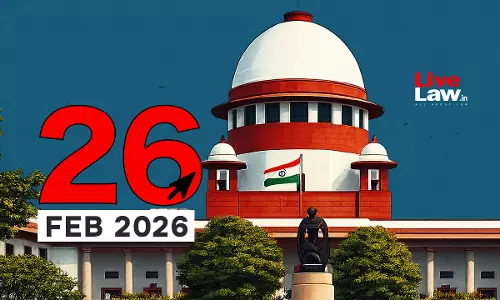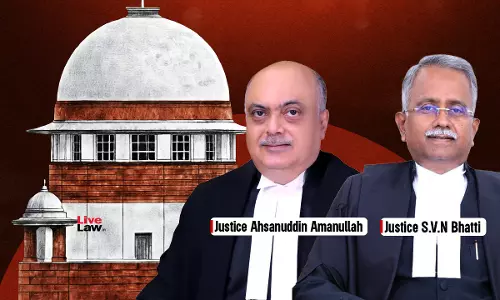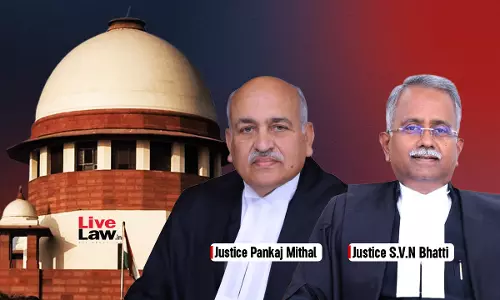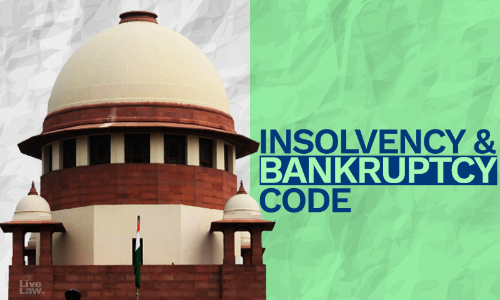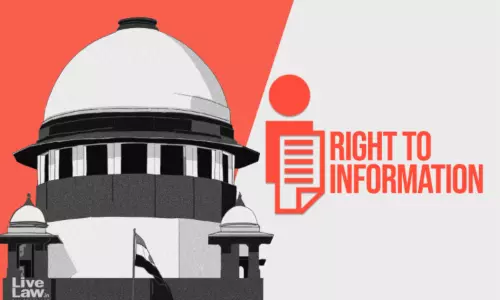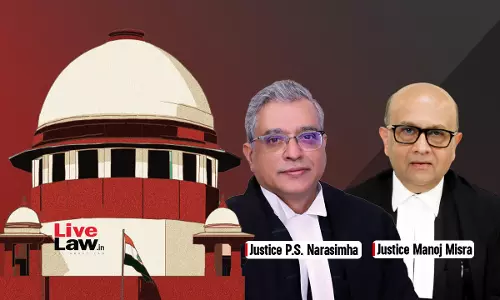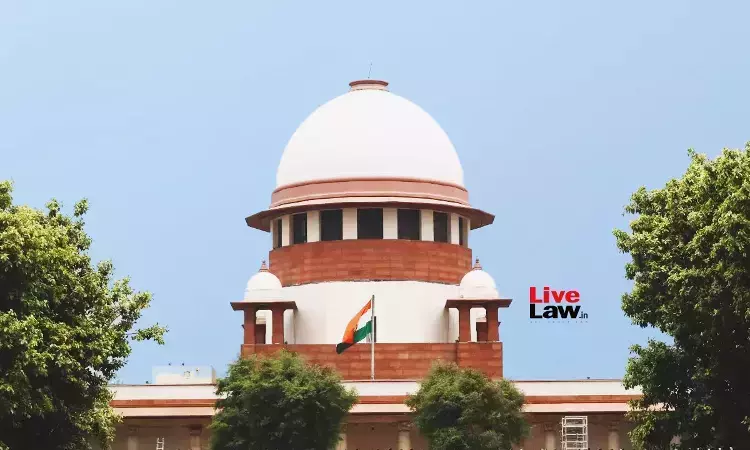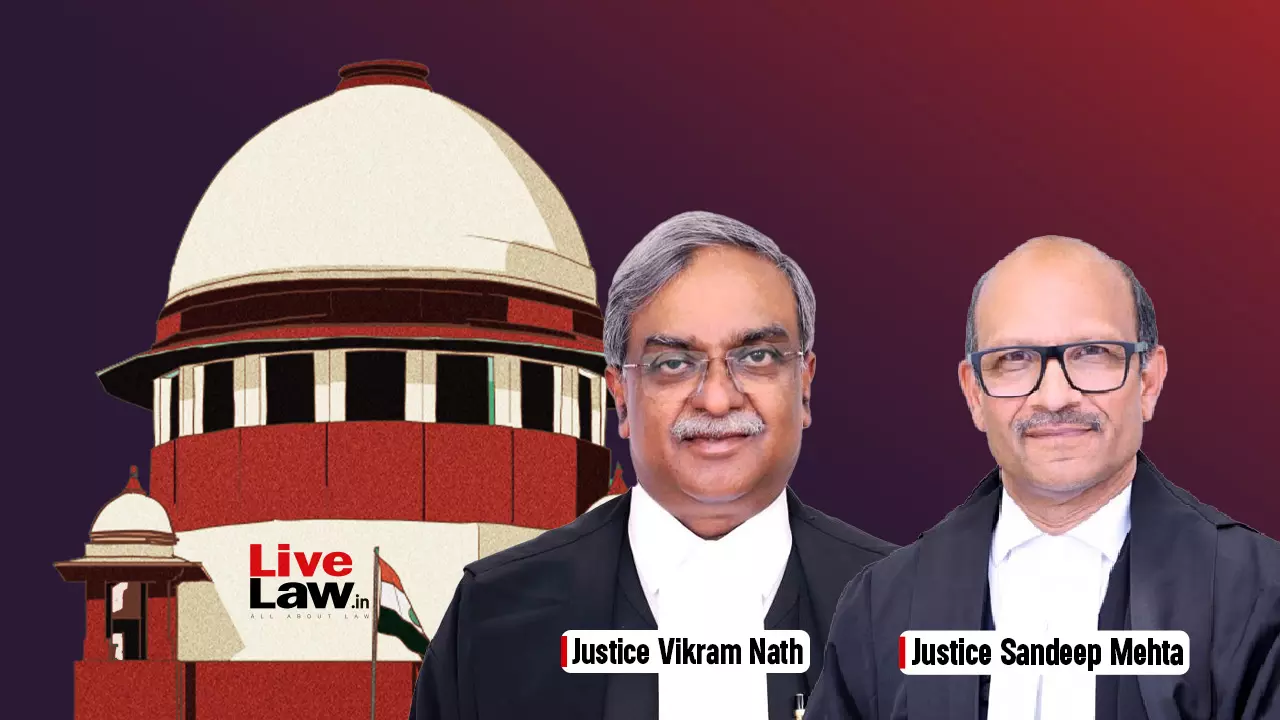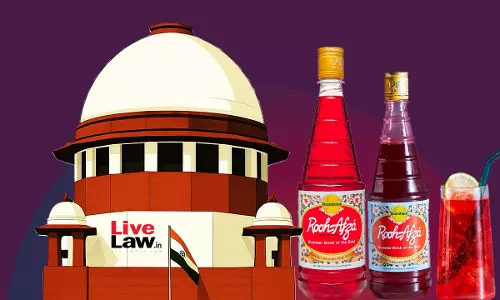Supreme court
Supreme Court Daily Round-Up : February 27, 2026
Links to today's SC reports :SC Collegium Recommends Justice S.A. Dharmadhikari As Madras High Court Chief Justice; Justice Lisa Gill For Andhra Pradesh HCSupreme Court Collegium Approves Appointment Of Nine Advocates As Patna High Court JudgesAll States/UTs Framed Rules To Implement Shariat Act? Supreme Court Seeks ReportSC Collegium Adopts New Policy To Ensure Incoming HC Chief Justices Are Available Before Incumbent's RetirementWest Bengal SIR | Supreme Court Refuses To Entertain Objection To...
IBC | Supreme Court Cautions Against Excessive Judicial Review, Criticises Trend Of Unsuccessful Bidders Seeking To Reopen CoC Decision
The Supreme Court today criticised growing trend of unsuccessful resolution applicants converting challenging almost every commercial decision of the Committee of Creditors under the guise of procedural impropriety and turning the insolvency process into a protracted adversarial contest.“The appeals before us typify the growing strategic use of the judicial system by unsuccessful resolution applicants who seek to reopen almost every commercial decision under the guise of procedural impropriety....
Supreme Court Daily Round-Up : February 26, 2026
Links to today's stories :Supreme Court Bans NCERT Textbook With Chapter On Judicial Corruption, Issues Contempt Notice To NCERT Director & Ministry OfficialSupreme Court Expresses Reservations About 3-Year Practice Rule To Join Judicial Service, Says Women Affected'Marketing Labels Not Decisive For Tax Classification', Supreme Court Holds Rooh Afza Taxable As Fruit DrinkPune Porsche Case...
S.469 CrPC | Limitation Period Starts From Date When Offender's Identity Is Known & Not From Receipt Of Complaint : Supreme Court
The Supreme Court has observed that the period of limitation in criminal prosecutions begins from the date when the identity of all accused persons becomes known to the competent authority, and not from the date of the first complaint. A bench of Justices Ahsanuddin Amanullah and SVN Bhatti set aside the Kerala High Court's decision to quash the criminal proceedings under the Drugs and...
Deed Cannot Be Reinterpreted Based On Parties' Later Conduct When Terms Are Clear & Unambiguous: Supreme Court
The Supreme Court has cautioned against reliance on the ex-post facto conduct of parties to reinterpret a lease deed when the terms of the document are clear and unambiguous, holding that a lease validly established on the face of the deed cannot be altered or diluted by reference to the parties' subsequent conduct. “…courts must exercise far greater restraint when inferring the...
IBC Permits Parallel CIRP Against Debtor & Guarantor For Same Debt : Supreme Court
The Supreme Court on Thursday (February 26) observed that there's no bar under the Insolvency and Bankruptcy Code to initiate simultaneous CIRP against the corporate debtor and guarantor for the same debt. The bench of Justices Dipankar Datta and Augustine George Masih endorsed the findings of BRS Ventures Investments Ltd. v. SREI Infrastructure Finance Ltd. & Anr that "consistent with...
RTI Act Applies To Cochin International Airport Ltd : Supreme Court Upholds Kerala High Court Order
The Supreme Court today upheld the Kerala High Court order which held that the Cochin International Airport (CIAL) is a 'public authority' coming within the purview of the Right to Information Act, 2005.A bench of Justices Vikram Nath and Sandeep Mehta passed the order, after hearing Senior Advocate Mukul Rohatgi (for CIAL). It was of the view that the impugned order furthered transparency...
Maharashtra Co-Operative Societies Rules | Failure To Pay Balance Amount In 15 Days Renders Auction A Nullity: Supreme Court
The Supreme Court has held that an auction sale conducted under the Maharashtra Co-operative Societies framework becomes void ab initio if the full purchase price is not deposited within the statutorily prescribed time. A bench of Justices PS Narasimha and Manoj Misra partly allowed the Bombay High Court's ruling, while allowing that part of the ruling which had set aside the auction sale due...
Non-Recovery Of Murder Weapon Not Fatal To Prosecution's Case When Other Credible Evidence Exists : Supreme Court
The Supreme Court has upheld a murder conviction, observing that the existence of credible and consistent ocular evidence is sufficient for conviction, despite failure to produce the weapon used in the crime. "…the absence of recovery of the weapons of assault would not weaken the case of the prosecution in the presence of other evidence on record that is found reliable.”, observed a...
Supreme Court Issues Nationwide Directions To Expand And Reform Open Prisons
The Supreme Court today issued comprehensive directions to ensure the effective utilisation and expansion of Open Correctional Institutions (OCIs) across the country, holding that they must function as meaningful institutions of reform and rehabilitation.A bench of Justice Vikram Nath and Justice Sandeep Mehta observed that the directions are issued to ensure that the constitutional...
'Marketing Labels Not Decisive For Tax Classification', Supreme Court Holds Rooh Afza Taxable As Fruit Drink
Observing that marketing labels cannot dictate a product's tax category, the Supreme Court on Wednesday (February 25) held 'Rooh Afza' to be a fruit-based beverage preparation intended for dilution, qualifying for a concessional tax rate of 4%, despite it being marketed as a 'Sharbat', which attracts a higher tax rate of 12.5%. “…once it is demonstrated that the product is a...



